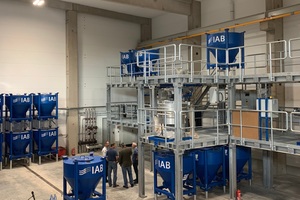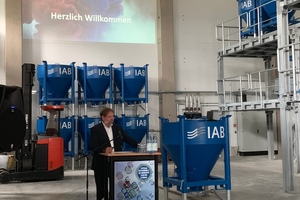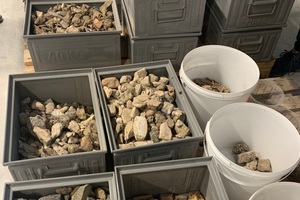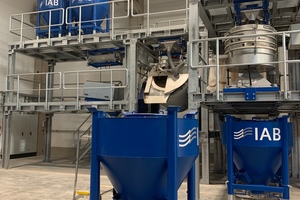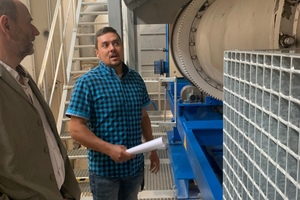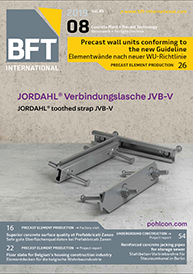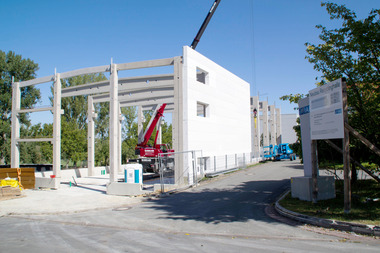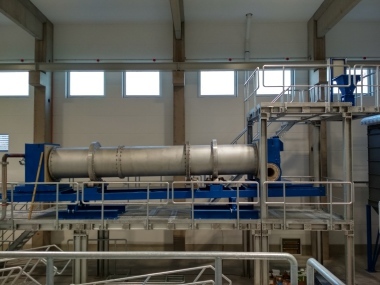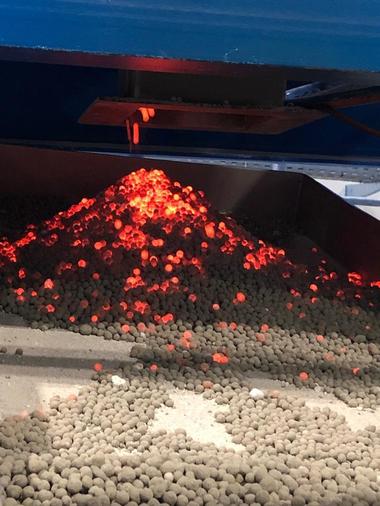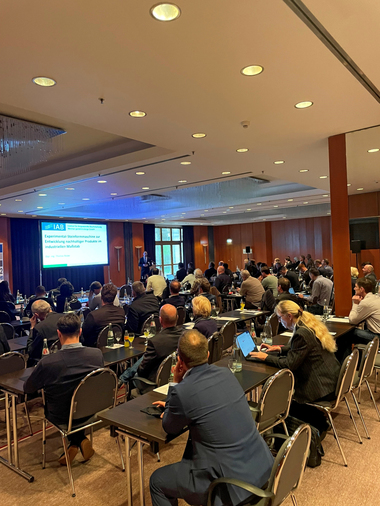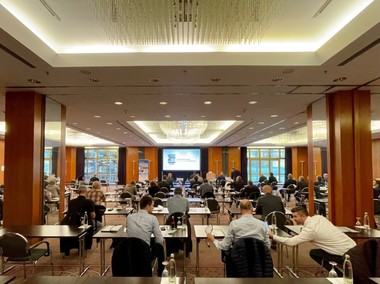Circular economy: IAB inaugurates recycling pilot station
If the materials used for building are reused after their original use, i.e. a waste product becomes a secondary raw material, then we talk about recycling of building materials. Returning secondary raw materials to a new production process is one of the major challenges of 21st century. The closed-loop circulation and the development of innovations in the field of recycling technology belong to the central and demanding subjects of research of IAB Weimar. „In particular, the step from research to practice is not always easy to take,“ says Dr.-Ing. Ulrich Palzer, director of the institute. This step shall be facilitated by the new pilot plant that has now been officially inaugurated on the occasion of the IAB summer party.
Official inauguration
More than 150 guests accepted the invitation of IAB Weimar and attended the inauguration of the pilot plant. The event was opened by the director of the institute, Dr.-Ing. Ulrich Palzer, who explained the great significance of recycling for the current construction industry and outlined the possibilities and objectives of the technology center. The pilot plant will transfer the theory into practice. This means that the entire process chain is transferred to a relevant industrial scale, adequately representing the separate recycling steps of the overall process. The project was praised by Antje Tillmann, member of the German Bundestag and spokeswoman for financial affairs of the CDU/CSU parliamentary group. „The IAB Weimar is an excellent example for the fact that not everything was overslept in Germany.“
The recycling pilot plant station completely corresponds to the regional research and innovation strategies for smart specialization (RIS3) in Thuringia. Hence, 50% of the investment costs amounting to about 2 million Euros were funded by federal and state governments within the scope of the joint scheme for improving regional economic structures. The mayor of the city of Weimar, Peter Kleine, also greeted the guests with a short speech, emphasizing the great significance of the research institute for the city. „Weimar not only stands for Goethe and Schiller, Weimar also stands for research and development.“
Receipt of materials
The new pilot plant is suitable for the production of lightweight granules from mineral residual materials and waste materials as well calcined clays. „The plant is the first one in the world and the only one of its kind for an integral use of construction waste on a semi-industrial scale,“ states Max Ramm, research assistant at IAB.
The recycling process involves three steps: the receipt of material, the processing of material and the manufacture of granules. At the receipt of the material the process starts with the preliminarily recording of the composition of the construction material mix both visually and as photo documentary, followed by weighing and a first rough sorting in case of the existence of any extraneous materials such as metal, for example. In the subsequent analysis of the material, the material composition and the extraneous materials (gypsum, light metals) recorded are evaluated by means of subsets in a manual sorting process.
Processing of material
Pre-drying in the drying chamber is the first step in processing. Once this procedure is completed, the material is crushed to the target mineral size using a jaw crusher. Soil is removed by a linear screen. Afterward, the material is fed to the ball mill. It is processed here to a finely dispersed powder material. This process step is aiming at the following:
Homogenization of the heterogeneous basic materials
Realization of the granulability
Admixing of the expanding additives
Afterward, a tumbler screen is used for screening possible oversize fractions out in order to ensure the target grinding fineness of the powder fraction. A next crucial analyzing step is the determination of the chemical composition – in the x-ray fluorescence analysis. This step includes the classification of the chemical composition in respect of the suitability for the manufacture of green granules, an adjustment of the composition if necessary, hot-stage microscopy, and various laboratory processes for realizing the target formulation in accordance with IAB standard methods. Then the green (unburnt) granules are manufactured by means of a dish granulator. In the powdering drum a release agent is deposited. Then the final drying process for optimum drying follows in the drying chamber.
Manufacture of granules
The rotary kiln is used in the next step so that the thermal processes, that are to be adapted to each other and running in parallel, will be successful:
1 Fusing of the mineral aggregate mixture appropriately and thermal decomposition of the expanding additives
2. Chemical transformation of the mineral basic materials
Once the granules are removed from the rotary kiln, they are placed on a storage area for cooling down, before being diminished by the linear screen to the mineral size fraction intended. A follow-up examination takes place before the finished granules are ready for filling. This examination includes an assessment of the environmental compatibility.

